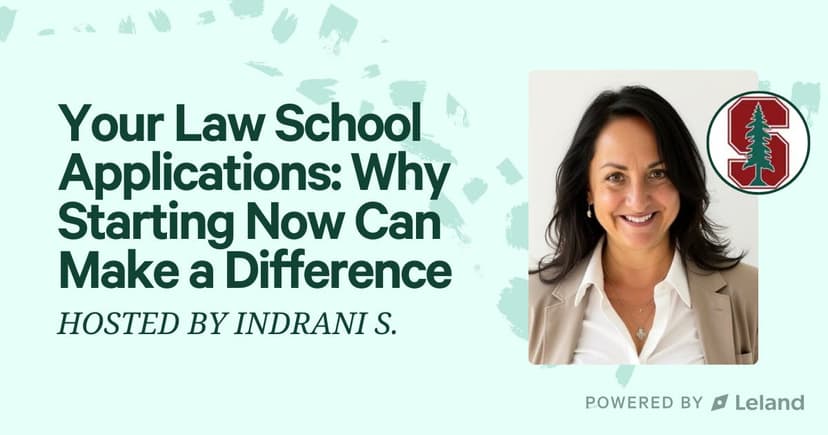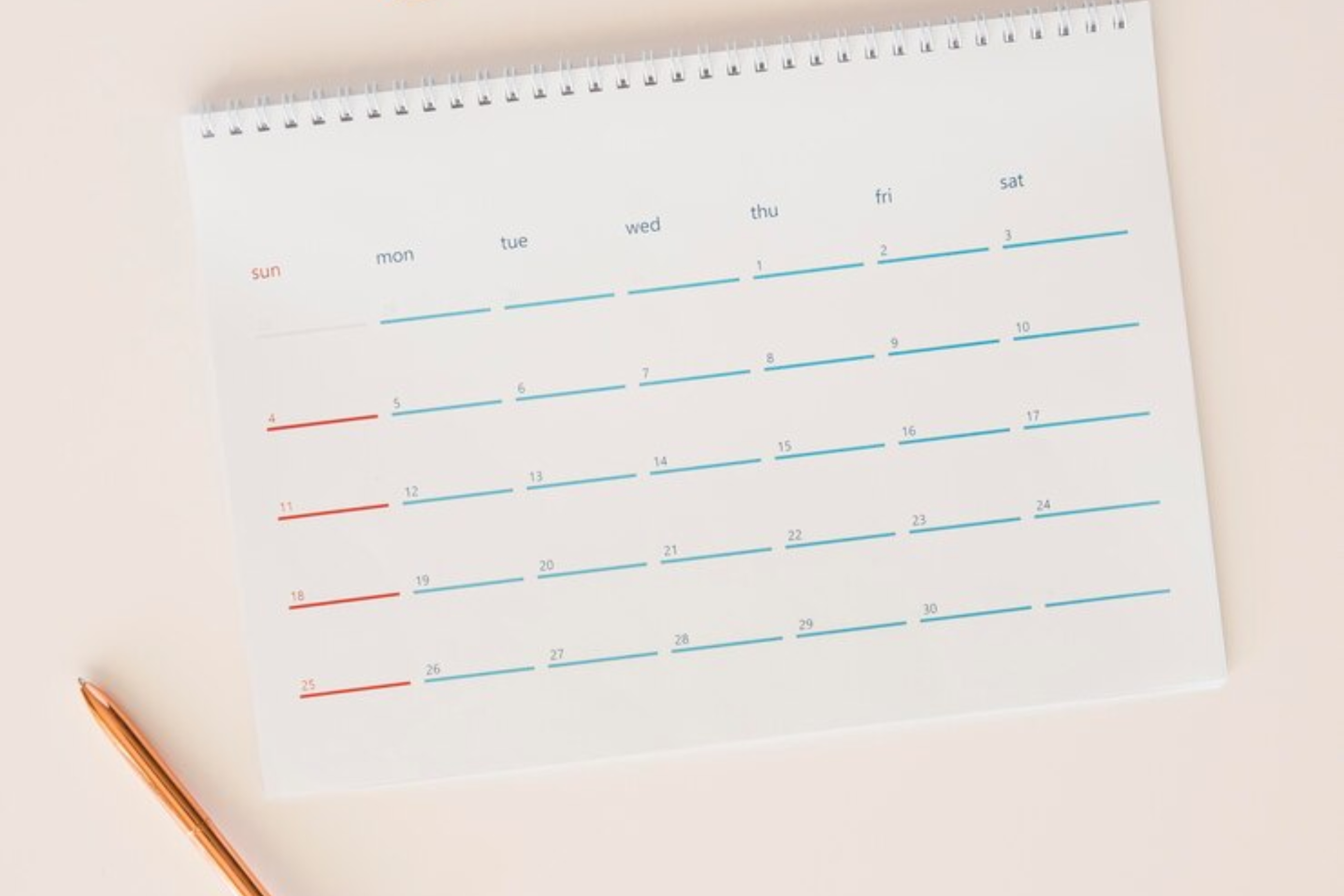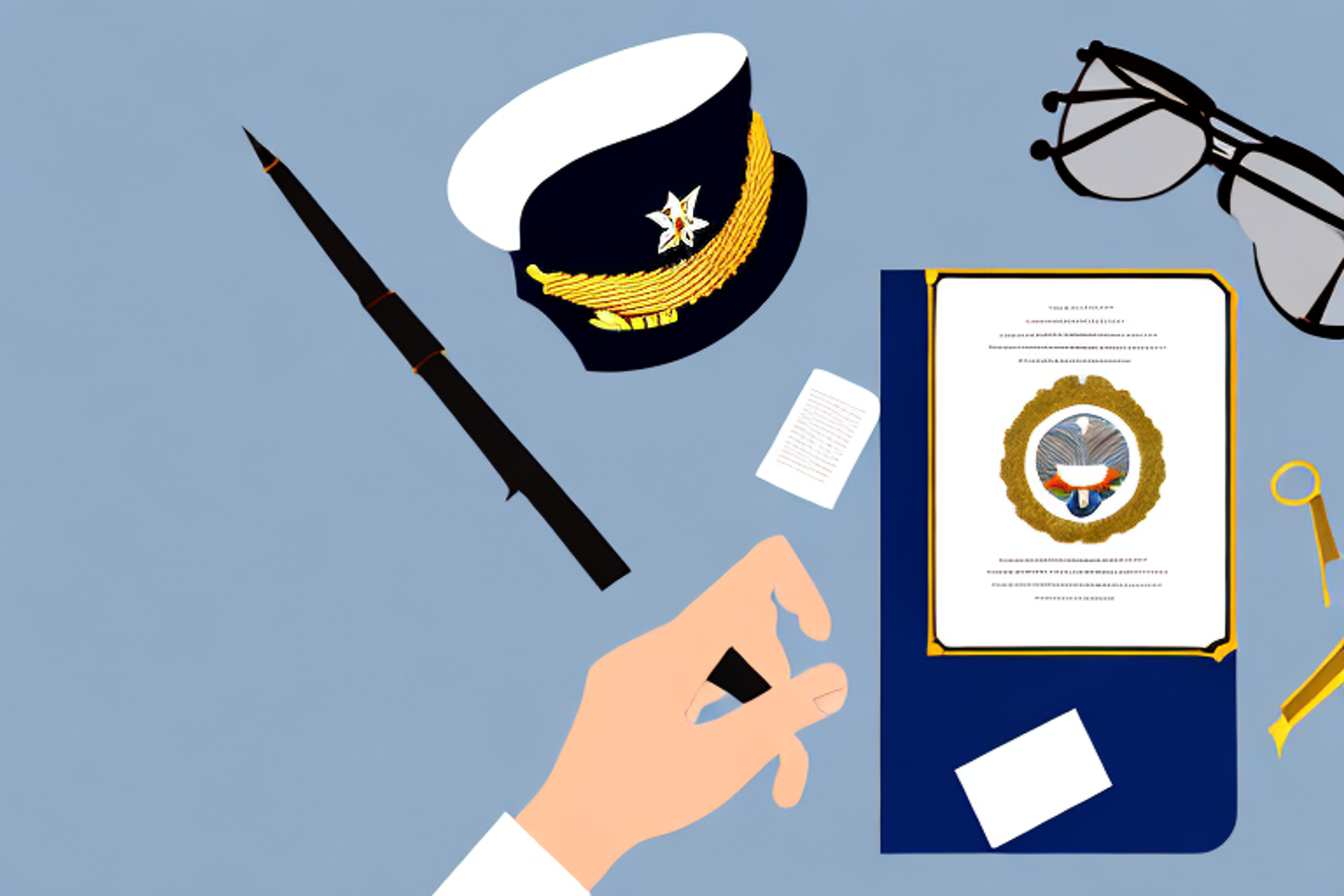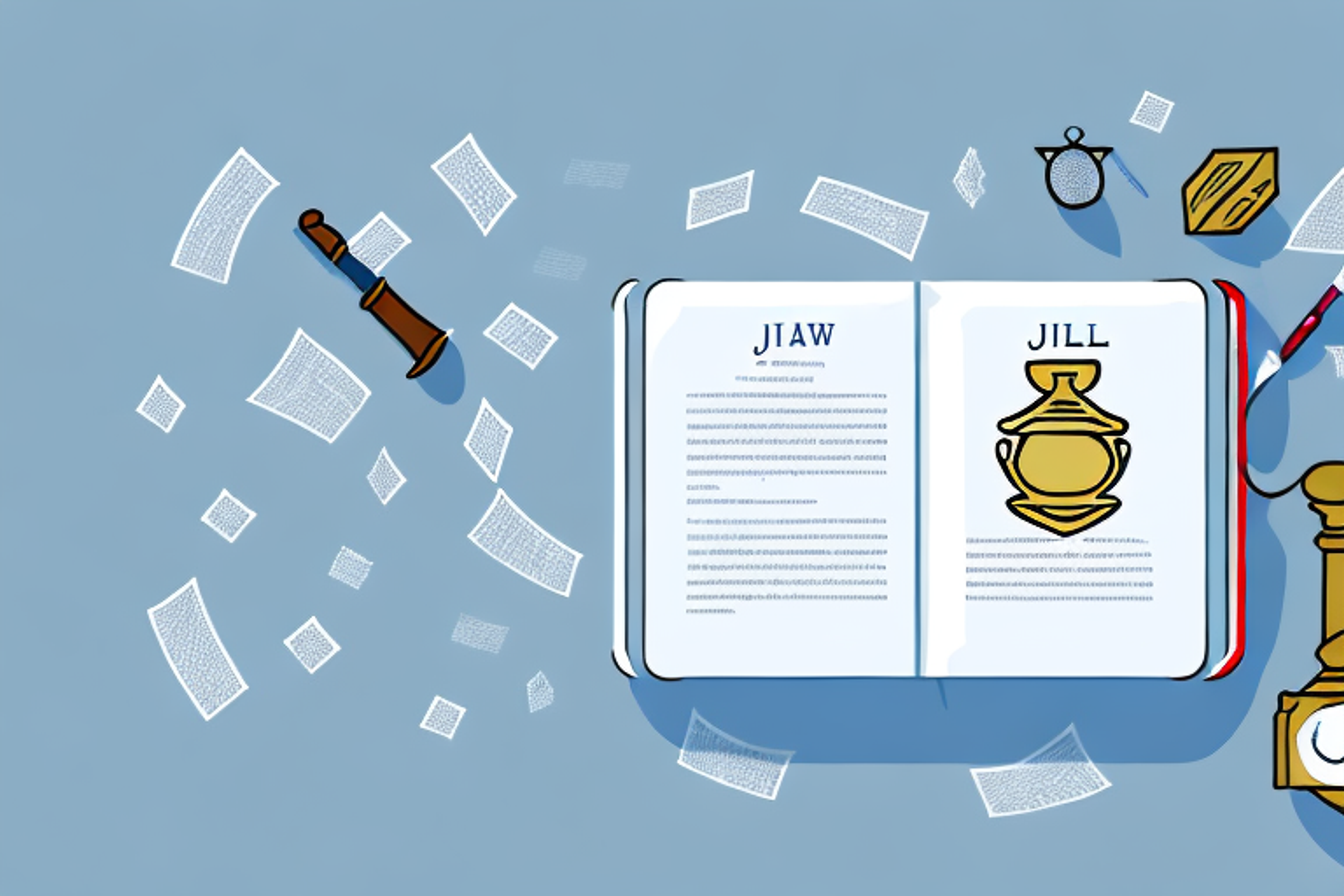Top 10 Questions to Ask During Your JD Application Interview
Are you preparing for a JD application interview? Don't miss out on these top 10 questions to ask during your interview.
Posted June 13, 2025

Join a free event
Learn from top coaches and industry experts in live, interactive sessions you can join for free.
Table of Contents
As you prepare for your JD application interview, it's important to have a set of questions ready to ask the admissions officer or member of the admissions committee. These questions will not only show your interest in the law school, but they will also help you gain insight into the school's culture, curriculum, and opportunities. In this article, we'll explore the top 10 questions you should ask during your JD application interview.
Preparing for Your JD Application Interview
Before we delve into the questions, let's discuss the importance of preparing for your JD application interview. You should research the law school, its programs, its faculty, and its student organizations. You should also brush up on your résumé, personal statement, and academic achievements. Finally, you should practice your interviewing skills by doing mock interviews and soliciting feedback from peers, mentors, or career counselors.
Another important aspect of preparing for your JD application interview is to familiarize yourself with the legal profession and current legal issues. This will not only demonstrate your interest and passion for law, but also help you answer questions related to your future career goals and aspirations. You can read legal publications, attend law-related events, or even shadow a lawyer to gain a better understanding of the profession.
Additionally, it's crucial to dress appropriately and professionally for your interview. Your appearance and demeanor can make a lasting impression on the interviewer, so make sure to dress in business attire and maintain good posture and eye contact throughout the interview. Remember, you want to present yourself as a serious and capable candidate who is ready to take on the challenges of law school.
Understanding the Purpose of a JD Application Interview
The primary purpose of a JD application interview is to assess your fit with the law school and its community. The interviewer will evaluate your communication skills, your intellectual curiosity, your sense of purpose, and your additional strengths and skills. The interviewer will also answer your questions, address your concerns, and provide feedback on your application materials.
Another important aspect of a JD application interview is to determine your motivation for pursuing a law degree. The interviewer will want to know why you are interested in law, what your career goals are, and how a law degree fits into your overall plans. This information will help the interviewer assess your commitment to the field and your potential for success in law school and beyond.
Additionally, the JD application interview is an opportunity for you to learn more about the law school and its culture. You can ask questions about the curriculum, the faculty, the student body, and the extracurricular activities. This information will help you determine if the law school is a good fit for you and if you will be able to thrive in its environment.
The Importance of Asking Questions During Your Interview
When you ask questions during your JD application interview, you demonstrate your interest and engagement in the law school and its community. You also gain valuable information that will help you make an informed decision about enrolling in the school. Moreover, you show your critical thinking and analytical skills by asking thoughtful and well-informed questions.
Another benefit of asking questions during your interview is that it allows you to establish a connection with the interviewer. By showing your curiosity and interest in the school, you can create a more personal and memorable interaction. This can be especially helpful if you are on the waitlist or if you are competing with other applicants for a spot in the program.
Finally, asking questions can also help you prepare for future interviews or networking events. By practicing your questioning skills, you can become more confident and articulate in your communication. You can also learn more about the legal profession and the specific areas of law that interest you, which can help you make informed decisions about your career path.
How to Research the Law School Before Your Interview
Researching the law school before your interview is crucial for asking informed questions and showing your knowledge and enthusiasm. You should explore the law school's website, its social media channels, its alumni network, and its publications. You can also talk to current students, faculty members, and alumni. Moreover, you can attend virtual or in-person events hosted by the law school, such as information sessions, webinars, or class visits.
Another important aspect to consider when researching a law school is its reputation and ranking. You can look up the law school's ranking on various websites, such as U.S. News & World Report, and read reviews from current and former students. Additionally, you can research the law school's faculty and their areas of expertise, as well as the types of clinics and externships offered. This information can give you a better understanding of the law school's strengths and areas of focus, and help you tailor your questions and responses during the interview.
What to Wear and Bring to Your JD Application Interview
It's essential to dress appropriately and professionally for your JD application interview, whether it's virtual or in-person. You should wear business attire, such as a suit or blazer, and avoid flashy or distracting clothing or accessories. You should also bring copies of your résumé, personal statement, transcript, and any other relevant materials. You can store them in a portfolio or folio to keep them organized and accessible.
In addition to dressing appropriately and bringing necessary materials, it's also important to research the law school and its values before your interview. This will help you tailor your responses and demonstrate your interest in the school. You can also prepare by practicing common interview questions and thinking about your strengths and weaknesses.
During the interview, make sure to maintain eye contact, speak clearly and confidently, and listen actively to the interviewer's questions. It's also important to be honest and authentic in your responses, rather than trying to give the "perfect" answer. Remember, the interview is an opportunity for the school to get to know you as a person and a potential student, so be yourself and let your personality shine through.
Commonly Asked Questions During JD Application Interviews
Some questions are more common than others during JD application interviews. For example, the interviewer may ask you about your motivation for attending law school, your academic and extracurricular experience, your career goals and aspirations, your strengths and weaknesses, and your interests and hobbies. You should prepare answers that showcase your unique perspective, your passion, and your achievements.
Unique Questions to Ask During Your JD Application Interview
While it's essential to ask standard questions during your JD application interview, you should also be creative and curious. By asking unique questions, you demonstrate your initiative and your intellectual curiosity. You can ask about the law school's culture, its academic specialties, its clinical and experiential learning opportunities, its alumni outcomes, its diversity and inclusion initiatives, and its community engagement efforts.
Another important area to inquire about during your JD application interview is the law school's faculty. You can ask about the faculty's research interests, their teaching styles, and their availability for mentorship and advising. Additionally, you can ask about the faculty's involvement in the legal community and their connections to practicing attorneys and judges. Understanding the faculty's expertise and connections can provide valuable insight into the quality of education and networking opportunities available at the law school.
How to Answer Difficult Questions During Your JD Application Interview
It's natural to face difficult or unexpected questions during your JD application interview. However, you should stay calm, focused, and honest in your responses. You can take a pause to gather your thoughts, rephrase or clarify the question if necessary, and provide relevant examples or anecdotes to support your answer. You can also ask the interviewer to repeat the question or provide more context if you need.
Another helpful tip is to anticipate potential difficult questions and prepare your responses in advance. You can research common interview questions for JD programs and practice answering them with a friend or family member. This can help you feel more confident and prepared during the actual interview. Additionally, it's important to remember that the interviewer is not trying to trick or intimidate you, but rather to assess your qualifications and fit for the program. So, approach each question with a positive attitude and a willingness to showcase your strengths and experiences.
How to Follow Up After Your JD Application Interview
After your JD application interview, you should send a thank-you note or email to the interviewer or admissions office. In your message, you should express your gratitude for the opportunity to interview, reiterate your interest in the law school, and highlight any specific points or insights that resonated with you during the interview.
Tips for Making a Good Impression During Your JD Application Interview
To make a good impression during your JD application interview, you should be professional, courteous, and enthusiastic. You should speak clearly and concisely, avoid slang or filler words, maintain eye contact, and exhibit good posture and body language. You should also be yourself and showcase your personality and values.
Common Mistakes to Avoid During Your JD Application Interview
Some common mistakes to avoid during your JD application interview include being late or unprepared, talking too much or too little, being overly aggressive or defensive, and disrespecting the interviewer or the law school. You should also avoid embellishing or making false claims about your background or achievements.
What Admissions Committees Look for in an Applicant During the Interview
Admissions committees look for several qualities and traits in an applicant during the JD application interview. These include intellectual curiosity and rigour, critical thinking and problem-solving skills, communication and interpersonal skills, leadership and teamwork abilities, and creativity and passion. They also seek diversity and inclusivity in terms of ethnicity, race, gender, sexual orientation, and socioeconomic background.
The Role of the JD Application Interview in Admissions Decisions
The JD application interview is an essential component of the law school admissions process. While the interviewer's feedback is not the sole determinant of your admission or rejection, it carries considerable weight in the overall evaluation of your application. Therefore, you should take the JD application interview seriously and use it as an opportunity to showcase your best self and learn more about the law school and its community.
Advice from Law School Admissions Officers on Navigating the Interview Process
Finally, we asked law school admissions officers to share their advice on navigating the JD application interview process. They emphasized the importance of being authentic, humble, and respectful during the interview. They also recommended researching the law school, preparing thoughtful questions, and practicing your interviewing skills. Lastly, they suggested using the JD application interview as a chance to demonstrate your fit and potential contribution to the law school and its community.
Browse hundreds of expert coaches
Leland coaches have helped thousands of people achieve their goals. A dedicated mentor can make all the difference.



















